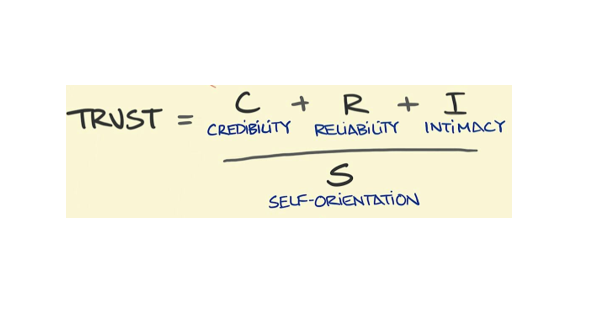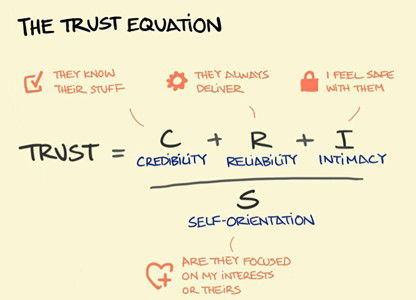4. Building Trust for Better Delegation: Why Trust Comes First

As business owners and leaders, especially in trades and manufacturing, we’ve all felt the weight of thinking, “I don’t know if I trust them to do this job as well as I can.” It’s a common challenge, particularly when you’ve moved up the ranks from being ‘one of the team’ to leading them. But here’s the thing—delegation is essential if you want to focus on growing your business rather than staying bogged down in the day-to-day grind. And the key to effective delegation? It starts with trust.
The Trust Equation
Trust isn’t something that magically appears. It’s built, often over time, based on three key factors:
- Reliability – Can your team members consistently deliver what they say they will? Are they dependable?
- Credibility – Do they have the skills and knowledge to do the job well? Have they shown they can handle responsibilities effectively?
- Intimacy – Do you feel comfortable working with them? This isn’t about friendship but about a sense of safety and authenticity. Are they genuine, and do they have the team's best interests at heart?
When these factors are strong, trust grows. On the flip side, trust erodes quickly if someone’s more focused on self-interest than the team or the task at hand.

Image Source: Sketchplanations
Focus on Trust First, Then Delegate
If you’re hesitant to delegate, it might be because you’re still unsure if someone ticks those trust boxes. Before you delegate, consider how you can build trust within your team. Are you giving people the chance to prove their reliability and credibility? Are you fostering open communication, so you understand where they’re coming from and what they need to succeed?
Simple Delegation: A Quick Checklist
Once you feel trust is in place, here’s a simple checklist to help you delegate more effectively:
- Choose the right person – Consider their skills, reliability, and current workload. Are they the best person for this task?
- Be clear on expectations – Explain what needs to be done, why it’s important, and any deadlines.
- Provide the right resources – Make sure they have the tools, information, and authority to complete the task.
- Set up a check-in point – Don’t hover, but make sure there’s a point where you check in on progress.
- Give feedback – After the task is done, provide feedback on what went well and what could be improved for next time.
Building trust takes effort, but once it’s there, delegation becomes a whole lot easier—and your business will run more smoothly as a result. Ready to take the leap? Start focusing on trust, and watch how your team steps up, freeing you to focus on what really matters—growing your business so you can thrive going into 2025!